In Massachusetts, there is a lot that goes into starting your own property management company. From getting licensed and registered to gaining a local client base, there is a long list of things that you will need.
Before you begin your own career in property management, it is crucial to understand the wide array of responsibilities associated with the role and how they vary depending on the type of property being managed.
Above all else, being able to consistently provide excellent customer service is vital for thriving in this profession.
At the end of the day, property managers act as the operational leaders for both residential and commercial properties.
What Does It Take to Be a Successful Property Manager in Massachusetts?
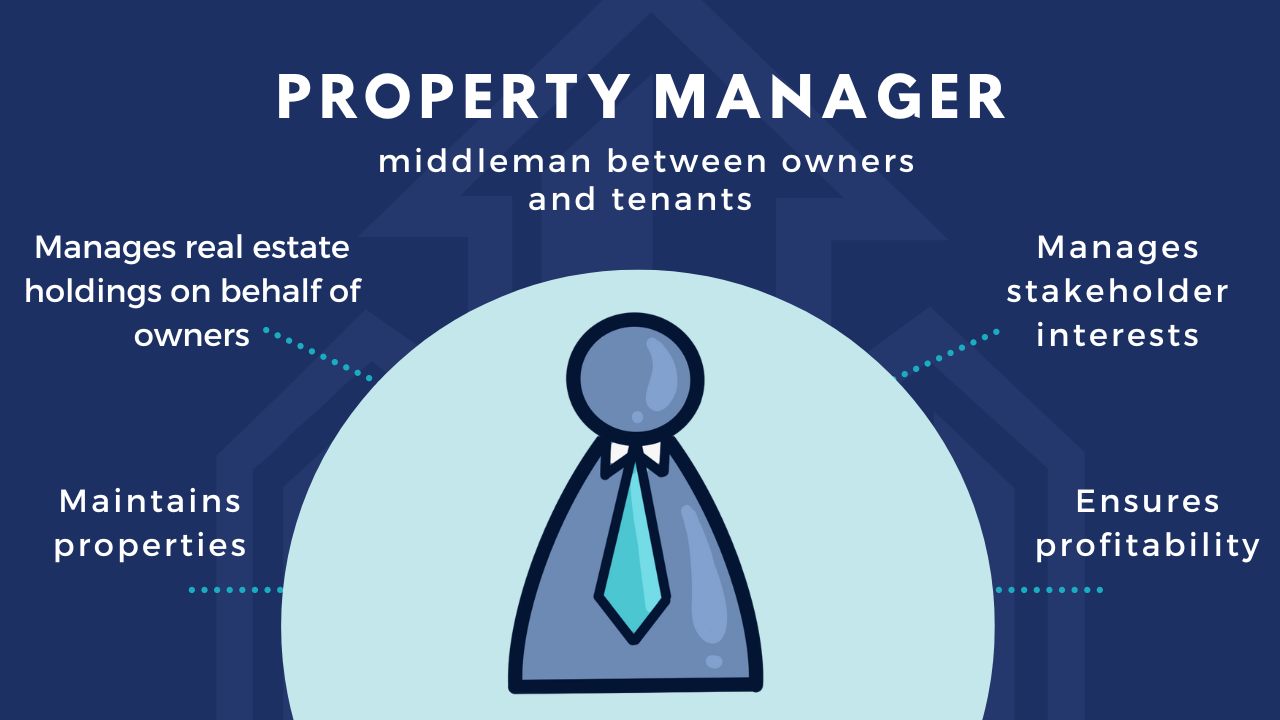
Being a property manager will involve overseeing various tasks and responsibilities, including:
- Overseeing lease agreements
- Managing the financial aspects of a property, such as rent collection
- Maintaining the property and keeping it in the best shape possible
- Finding new tenants, filling vacancies, and marketing properties effectively
- Addressing tenant complaints, emergencies and maintenance requests promptly
Now, there is a lot more that goes into being a professional property manager, but those are the most common tasks that you will be faced with each day.
As a property manager, your objective should be to ensure that the rental property you are managing is being well-maintained, profitable, and kept as a safe and satisfactory living or working environment for its occupants.
Property managers will often also tailor their responsibilities according to the specific type of property they are overseeing.
For example, residential property managers primarily focus on housing units such as apartments or houses, placing significant importance on tenant welfare.
In property management, exceptional customer service is the key to maintaining tenant satisfaction and retention. Keeping tenants happy long term is the best way to make sure that your business and your clients are always earning a revenue from the property.
Property managers must possess strong communication skills in order to:
- Address any concerns raised by owners and tenants in a timely manner
- Mediate disputes effectively
- Maintain positive, long term professional relationships with clients, contractors, and tenants alike.
This emphasis on customer service not only enhances the reputation of your property management company in Massachusetts, but it can help lead to long term success in the industry.
So, now that you know what it takes to be a successful property manager, do you still think that you are up for the challenge? If so, keep reading to find out the exact steps that you will need to follow in order to start your very own property management company in the state of Massachusetts.
Step 1: Make Sure That You Are Qualified to Be a Property Manager
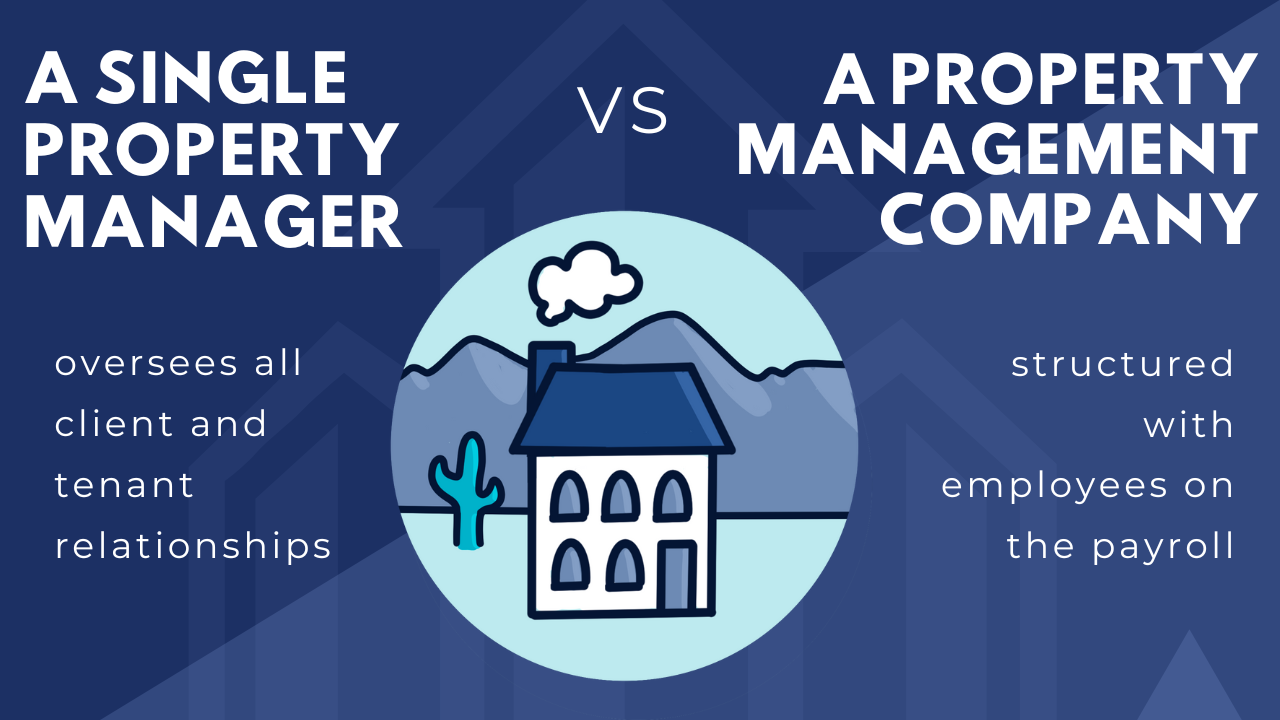
If you want to start a property management company in Massachusetts, attaining a foundational level of education is essential to make sure that you are properly prepared to handle all of the responsibilities that come along with the job.
Many states have requirements for property managers before they start to work in the field. Massachusetts, however, does not!
While Massachusetts may not require a particular license for property managers, it is advisable for individuals aspiring to enter the field to pursue educational courses in property management. Formal education is recommended to make sure that you have all the foundational knowledge that you need in order to successfully provide top notch property management services to your clients.
Here are just some of the education options for property managers in Massachusetts:
High School Diploma or GED: Obtaining a High School Diploma or GED is the best first step for prospective property managers. This qualification lays the groundwork for your subsequent training in property management and real estate.
Higher Education in Real Estate: Although not required, pursuing higher education in real estate offers a competitive advantage. Courses covering property management, real estate law, and business administration are extremely useful to anyone looking to work in real estate and managing properties. These courses are typically included in associate or bachelor’s degree programs offered by accredited institutions, equipping you with comprehensive knowledge and practical skills in the field.
Real Estate License: Although not mandatory for property management activities such leasing and renting, obtaining a real estate license in Massachusetts can be overall helpful for your long term success as a property manager. It provides you with a foundational understanding of real estate laws and practices.
- Certified Property Manager (CPM): Attaining the Certified Property Manager (CPM) designation proves a property manager’s expertise and dedication to the industry.
- Certified Apartment Manager (CAM): For those specializing in managing apartment communities, obtaining the Certified Apartment Manager (CAM) credential is highly valuable.
Acquiring professional education and certification in property management and real estate is extremely beneficial for a prosperous and successful career as a property manager in Massachusetts.
So, even though Massachusetts does not require formal education the way that other states do, we do not think that you should skip these steps, as doing so could mean that you are not as prepared for the job as you could be.
Property management requires a lot of knowledge and responsibility, and we recommend that you do everything you can to make sure that you are as qualified as possible before you dive in.
Step 2: Do Your Research on Massachusetts’ Rental Laws and Local Market Conditions
If you want to start a successful career in property management in the state of Massachusetts, you must be able to thoroughly understand the state-specific real estate laws and the intricate leasing and eviction processes.
Just like any other state, Massachusetts property managers need to familiarize themselves with various real estate laws. This includes things such as zoning regulations, fair housing practices, and property codes.
Enrolling in property management courses covering state-specific legalities can help you get started in this process.
Managing the delicate balance between tenant rights and owner responsibilities is difficult, but it is crucial to your success. Leasing laws include topics ranging from security deposit limits to mandatory disclosures.
For example, in Massachusetts, you can’t charge a tenant a security deposit that is larger than one months’ rent.
In addition to your state specific legal research, you will want to know as much as you can about your local Massachusetts rental market before you embark on your journey to start your own company.
Start by doing research on the standard prices of rental properties in your market. Take note of the location, the size, the type of property, and the amenities.
What qualities and locations in Massachusetts warrant a higher rent price? What is your target demographic?
After you have researched the rental properties in your area, try looking into what your competitors charge for their services.
This will help you in the future as you figure out how much you will want to charge for your own services, which we will touch on again later.
Step 3: Understand How to Structure and Register Your Property Management Business
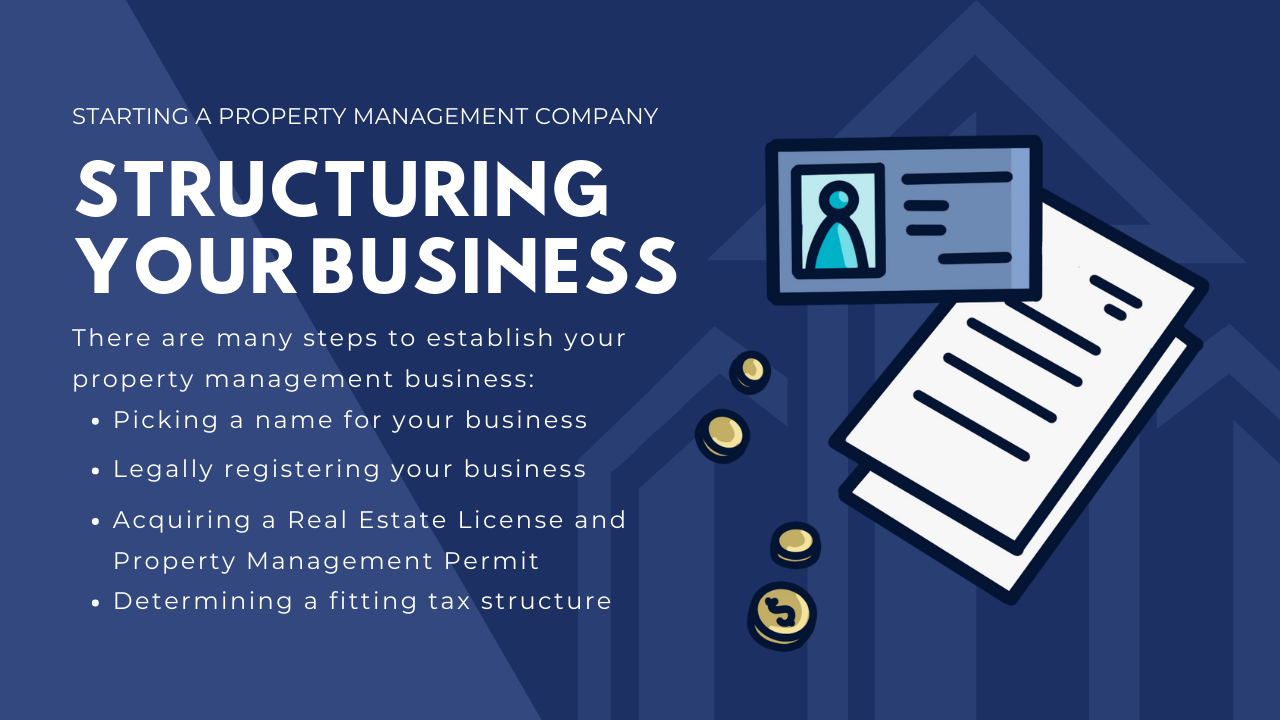
Structuring and registering a property management company in Massachusetts involves several key steps.
First, you will want to decide on the business structure, whether it’s a sole proprietorship, partnership, limited liability company (LLC), or corporation, considering factors like liability protection and tax requirements.
Next, choose a unique and memorable name for the company, ensuring it complies with state regulations and is distinguishable from existing entities.
Then, you can register the business with the Massachusetts Secretary of the Commonwealth’s Corporations Division, filing the necessary forms and paying any associated fees.
As you navigate this process, we highly recommend working with a legal professional who specializes in real estate that can help guide you through all of the confusing details that may come up along the way.
Step 4: Create a Strong Contract for Your Clients
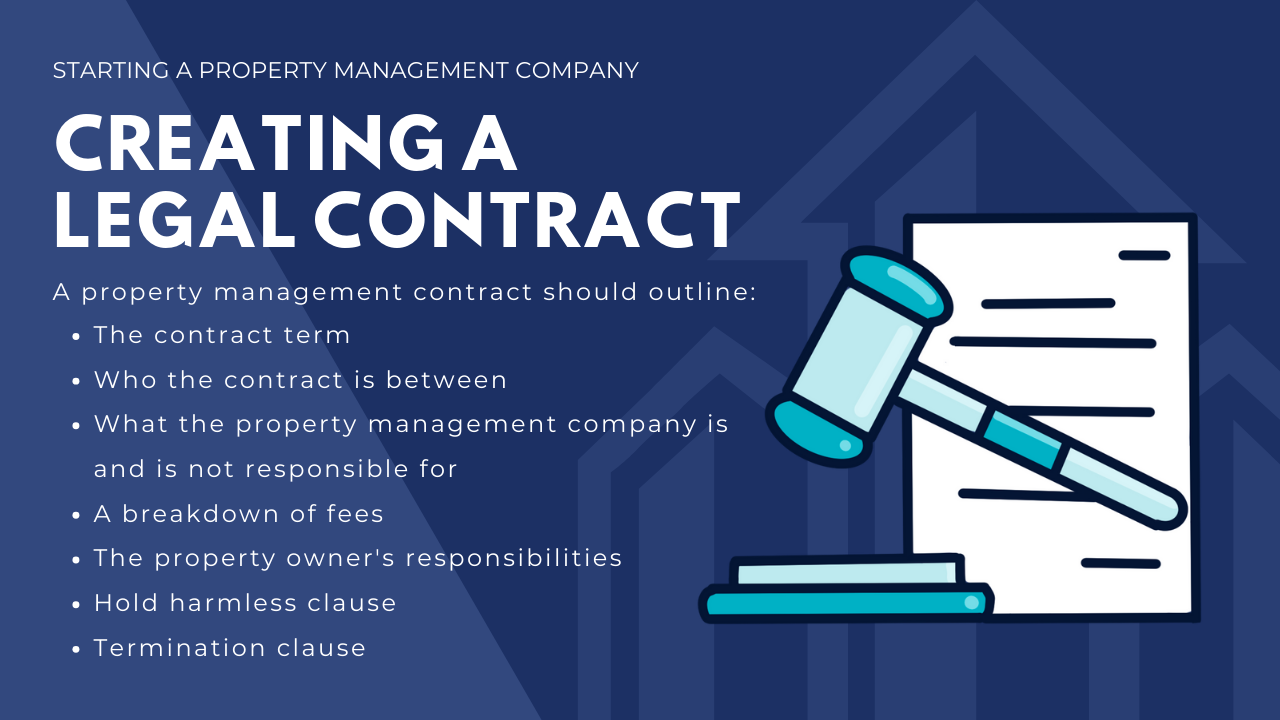
When you become a property manager, you will want to make sure that you and your company are protected once you start working with clients. You can do this by creating a detailed contract.
Property managers in Massachusetts can create a strong contract for their clients by including a few key elements.
First, clearly outline the range of services provided, detailing responsibilities such as rent collection, property maintenance, tenant screening, and lease administration.
You will also want to specify the duration of the agreement, including start and end dates, along with any renewal or termination clauses.
Include any relevant details regarding fees and payment terms, ensuring transparency and clarity regarding compensation. Address important legal considerations such as compliance with Massachusetts real estate laws, fair housing regulations, and eviction procedures.
Finally, ensure the contract is written in clear and understandable language to avoid any misunderstandings or disputes down the line. This is for the benefit of all parties involved with the contract.
Consulting with legal professionals experienced in Massachusetts property management law can help ensure the contract meets all necessary legal requirements and adequately addresses the needs of both the property manager and the client.
Step 5: Create a Business and Marketing Plan for Your Massachusetts Property Management Company

So, you have registered your business, gotten certified as a property manager, done your research and created a strong contract for your future clients.
So, what now? At this point in the process, we highly recommend creating a business and marketing plan.
Creating a comprehensive business plan for a property management company in Massachusetts involves a few important steps.
Begin by using your thorough market research to take note of the local real estate landscape, including demand for property management services, competitive analysis, and target demographics.
Define your company’s mission, vision, and values, outlining the unique value proposition and your positioning in the market.
Specify the range of services that you will be offering, such as tenant screening, rent collection, maintenance, and financial management.
Then, you must develop detailed financial projections, including startup costs, revenue forecasts, and profitability estimates.
Next, you will want to think about how you will attract clients. Outline your marketing strategy, including your methods of gaining leads and building brand awareness.
Address operational aspects of your business such as staffing, technology infrastructure, and legal compliance with Massachusetts real estate laws and regulations.
Ask yourself these questions: Will you begin by outsourcing contracted work for your managed properties? Will you hire in-house experts to help delegate different responsibilities?
Then, you can continuously revisit and refine the business plan as your company grows and adapts to changing market conditions in Massachusetts.
Step 6: Find a Property Management Software to Help Automate Your Operations
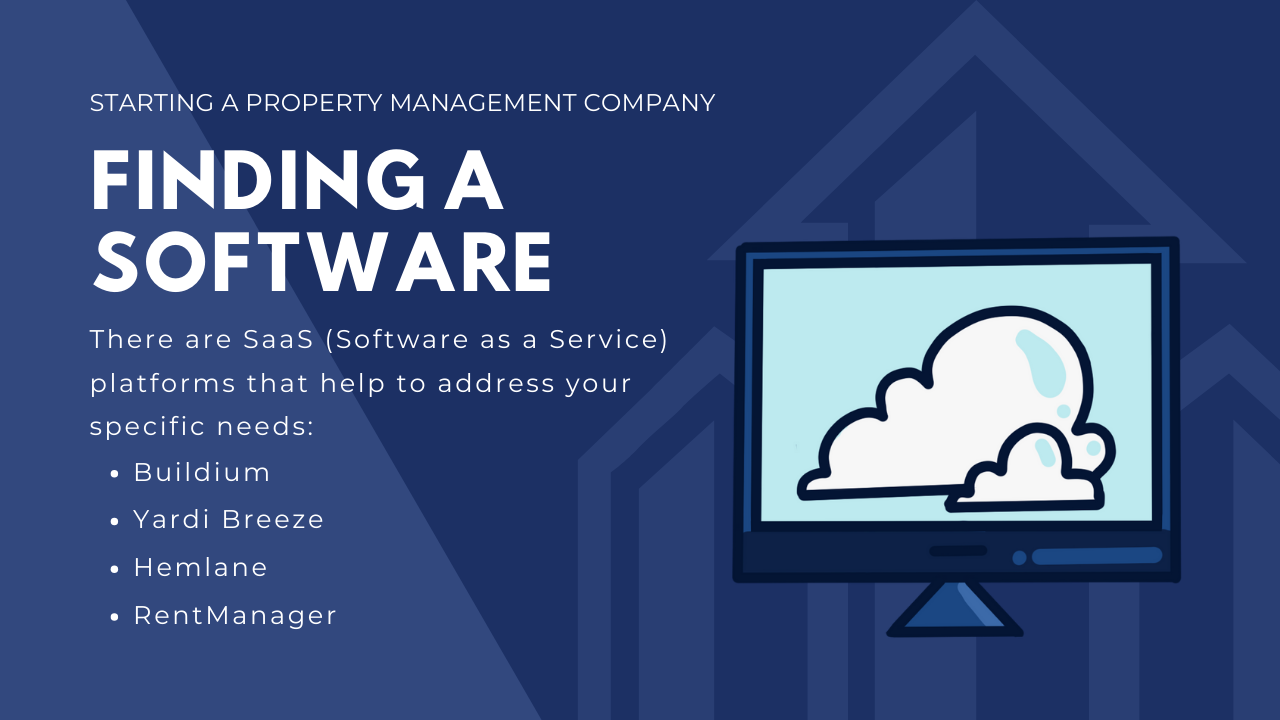
For property management companies in Massachusetts, juggling competing priorities is a daily occurrence.
This is simply a part of the job, and the sooner you are able to find ways to organize and automate all of your tasks, the better.
The truth is, maintaining professionalism and responsiveness is very important for property managers who want to build trust with their clients.
When it comes to meeting business needs, choosing the right software is crucial. While selecting from a long list of options that are on the market today may seem daunting, it is essential to opt for a solution that can scale with your company’s growth.
While comprehensive property management software like Buildium, Yardi Breeze, Hemlane, and RentManager offer all-encompassing features, they may not be the ideal choice for startups.
Fortunately, there are numerous Software as a Service (SaaS) platforms tailored to address specific needs such as tenant rent collection, maintenance tracking, email management, and document sharing.
Though they may not be not as intuitive as the more all-in-one solutions on the market, these individual platforms are often more cost-effective and provide scalability, making them a great choice for starting your property management company.
Step 7: Determine Your Fee Structure
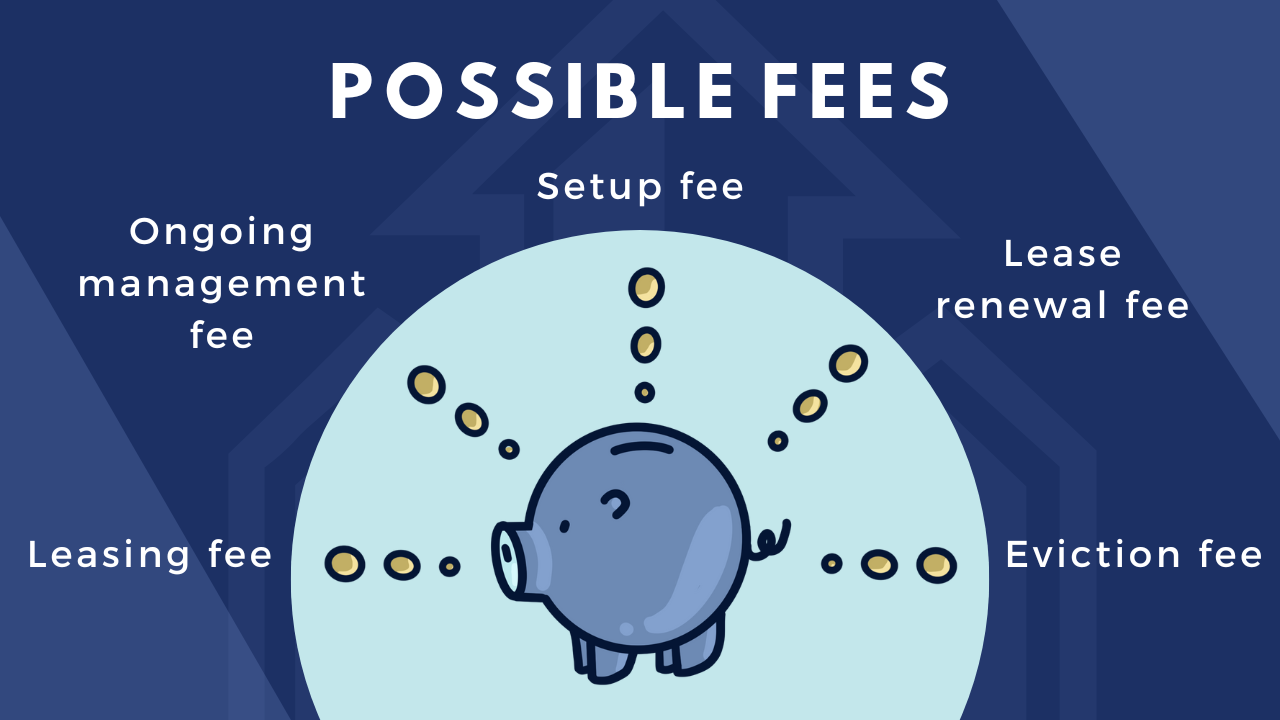
Once you have your business all set up, you will need to determine what your company’s fee structure will be before you start working with clients.
After all, you will need to know how you are going to be paid before you start providing services!
This process can be tricky, and it is important to strike a good balance when you are deciding how much to charge for your property management services.
Setting prices too low may compromise your credibility and leave you struggling financially. However, pricing too high could deter potential high-quality clients.
So, how do you find the right price for your business? To craft a fee structure that ensures sustainable income and piques client interest, you will need to revisit your market research that you have previously conducted.
Take a look at your competitors to see what they charge, and use this information to gain more insight on what kind of pricing you can use to attract clients, remain competitive, and still generate income.
Consider the Following Fees When Structuring Your Pricing:
Setup Fee: A one-time charge for Massachusetts property owners to establish an account, typically ranging from $200 to $300.
Ongoing Management Fee: The primary source of monthly income, typically 3-10% of the property’s monthly rental income, covering various operational costs.
Leasing Fee: A one-time charge equivalent to one month’s rent or a portion thereof, incurred when a unit becomes vacant, encompassing expenses related to tenant procurement.
Lease Renewal Fee: A less common fee, usually a small amount, implemented in competitive rental markets, paid by tenants upon renewing their lease.
Eviction Fee: An optional but advisable fee, particularly if you’re facilitating the eviction process on behalf of the property owner.
You can use these fees to tailor your structure to align with the clientele you aim to attract. Regardless of your pricing approach, prioritize maintaining consistent, top-tier service across all clients to safeguard your business’s reputation and enhance overall profitability.
Step 8: Focus On Lead Acquisition to Continue Your Success
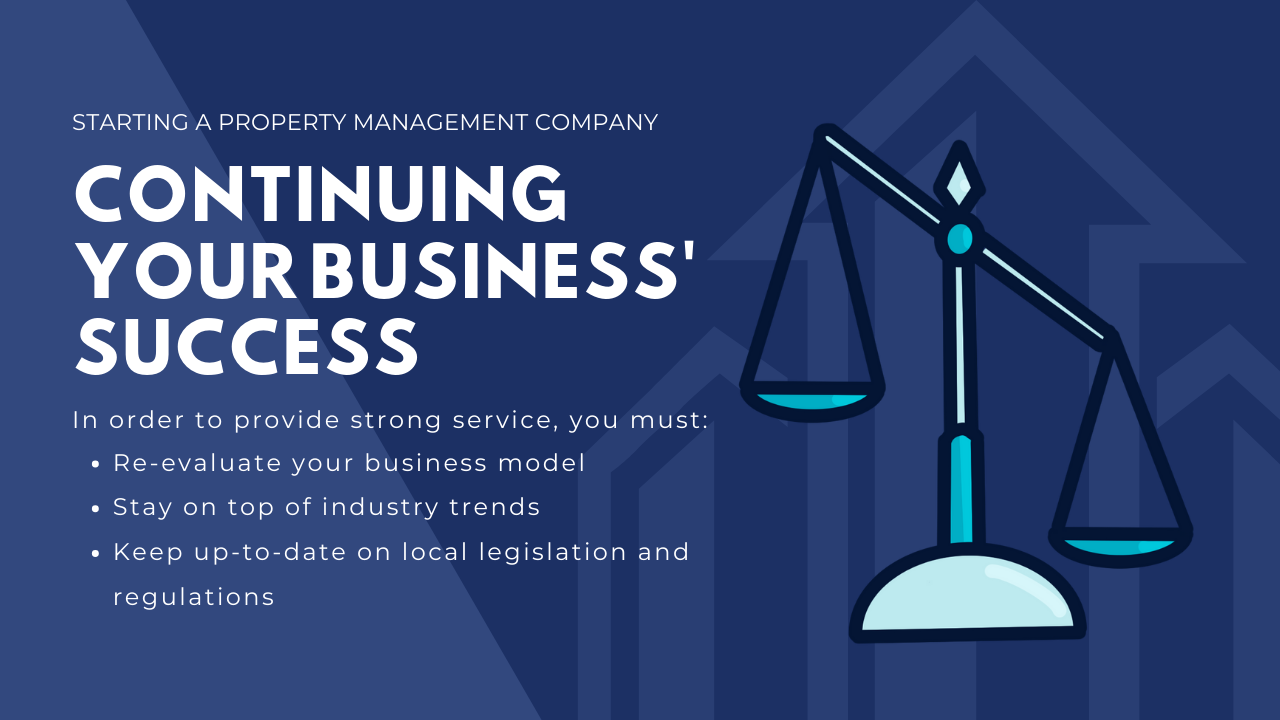
Now that your business is up and running, it’s time to get some leads!
Property managers need to use a wide range of marketing strategies to maximize the visibility of both their company and their rental listings. In today’s market, using online platforms is essential.
Additionally, incorporating social media campaigns and traditional methods such as flyers and local newspapers are pillars in a comprehensive marketing approach.
Having a strong understanding of how to market your company goes beyond just gaining clients, it can also help you fill vacant properties quickly.
At the end of the day, it is important to always maintain a strong marketing strategy for your property management company, not just at the beginning of your journey.
While it is always a good idea to learn as much as you can about marketing your property management company, you don’t have to do it alone!
Many property management companies enlist the help of professionals to help them set up a professional website, establish their branding, build their online presence, and more.
Luckily, we can help you do just that. At Upkeep Media, we work with property management companies to help strengthen their brand, attract clients, and create a website that can serve as a professional landing page for your business.
If you have any further questions about how you can start your Massachusetts property management company on the right foot, contact our team at Upkeep Media for more information.



